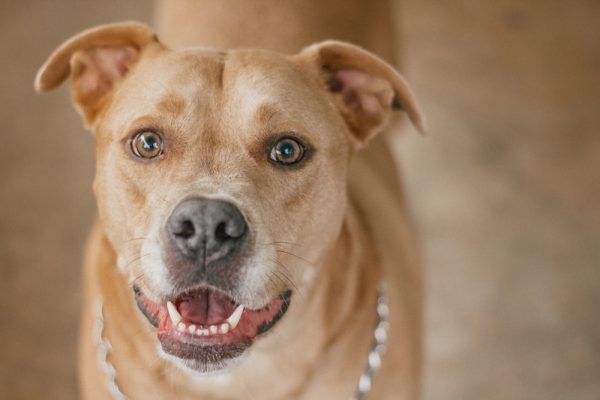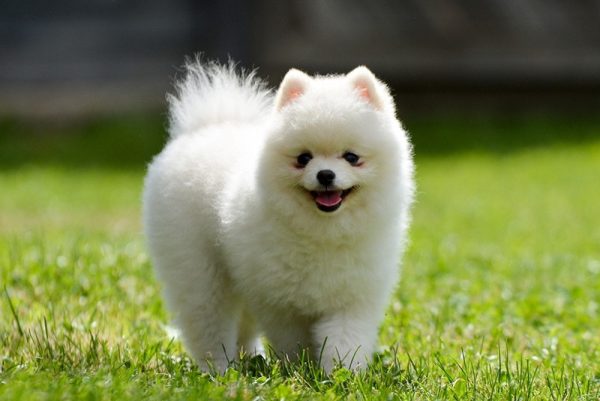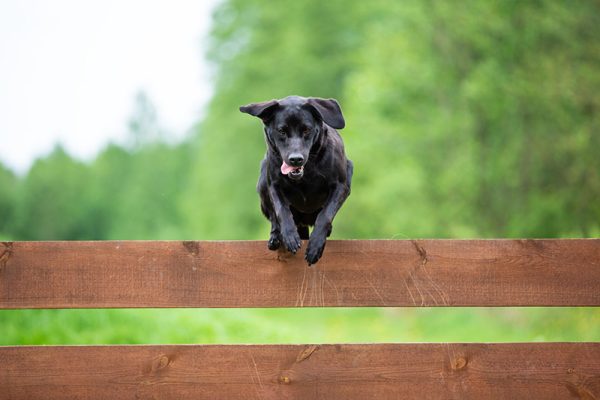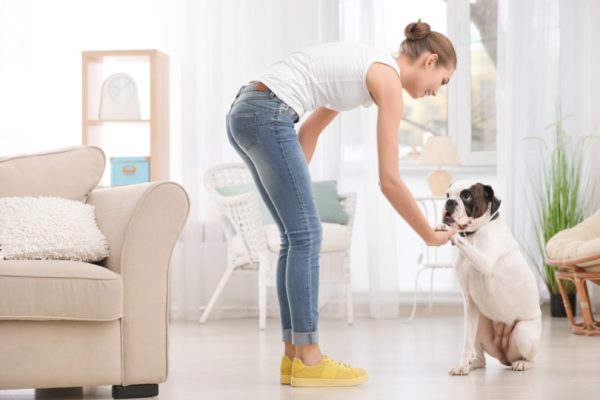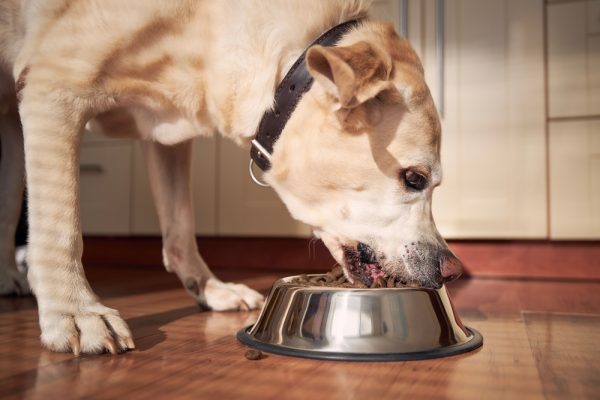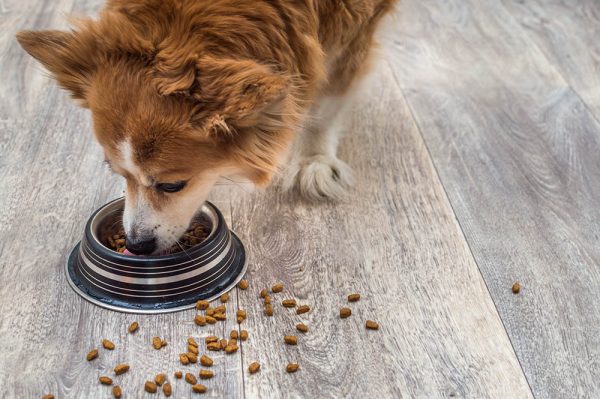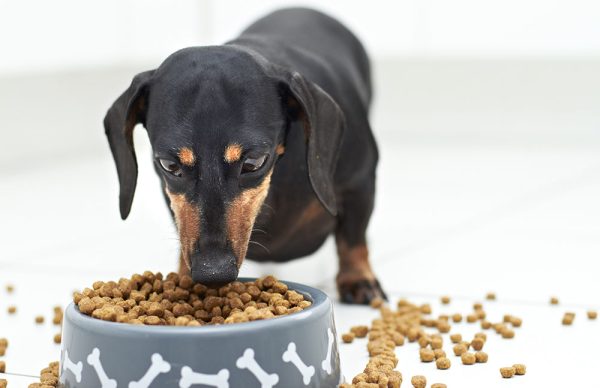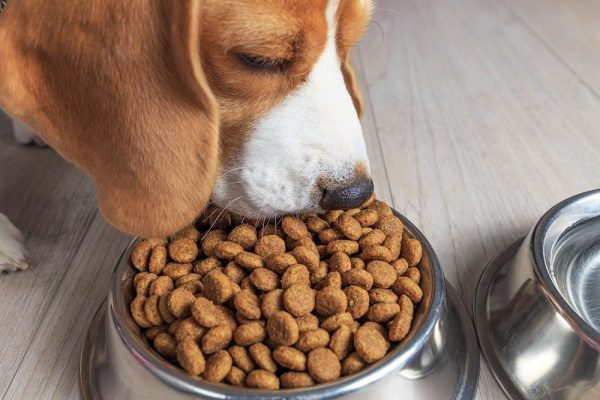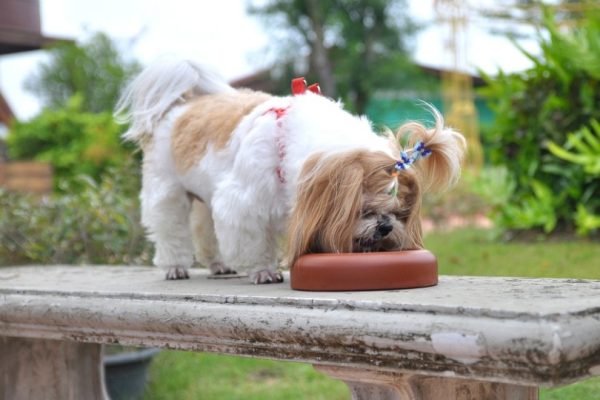In this article
Potty training is a must when you bring a new puppy home, and many puppy owners opt to use a crate to help with this. Crates can give puppies safe places to sleep and relax. But when puppies keep peeing in their crate, it can be frustrating. This is the problem that you’re trying to avoid by housebreaking them.
In this article, we look at several possible reasons your puppy is peeing in the crate and how to stop it.

The 6 Reasons Your Puppy Is Peeing in Their Crate & What You Can Do
1. Medical Issues

Even if your puppy tries their best not to have accidents in their crate, medical issues like urinary tract infections or even defects such as ectopic ureters and other anatomic abnormalities can make it impossible for them to hold it.
- Is frequently peeing all over the house, not just in the crate
- Was peeing a normal amount before but now can’t seem to stop going
- Is trying to pee with nothing coming out
- Cries, whines, or yelps when peeing
- Has dark or bloody urine
Take your pup to the vet for a checkup. The doctor will do a complete physical examination and is also likely to test the urine to see if an infection is present and prescribe the proper medications to clear it up. Other diagnostic tests and procedures will be considered depending on what the doctor learns from the physical examination and urine tests.
2. Improper Scheduling
Puppies won’t be able to hold their bladders as long as adult dogs. Generally, puppies of all breeds should follow a “1 hour per month of age” rule. If your puppy is 3 months old, they shouldn’t be expected to hold their bladders longer than 3 hours. This will vary from puppy to puppy, but following this rule and incorporating it into your schedule is a must during housebreaking. If your puppy is peeing in the crate, it could mean they’ve been in there too long and simply can’t physically hold it anymore.
Keep your puppy on a regular schedule that doesn’t force them to hold their bladders for too long. Ensure that your puppy has peed before putting them in the crate. Remember, the crate is a tool, but a puppy shouldn’t be kept inside it for extended periods. Dogs are social creatures and while learning to spend some time alone is healthy for them, a puppy shouldn’t be spending more than 2 hours in a crate during the day. Additionally, to help housetrain your puppy make sure you’re out at the right times. Your schedule may have to be adjusted for this to happen. If you can’t take your puppy out every time they need to go, consider asking a friend or relative to stop by to help, or hire a dog walker to make sure your pup stays on schedule.
3. Separation Anxiety

Separation anxiety is common in young puppies. Being separated from their littermates and brought to a new home can overwhelm them. They can become lonely and scared once they’re alone in the crate.
Make the crate as comfortable as possible for the puppy so they enjoy it. Reward them with a special treat when they go in. Fill the crate with toys to keep them entertained and busy, like a KONG filled with something healthy or a puppy-safe teething toy. Give them options to stay engaged, and make the crate fun. A big stuffed toy can also help them to feel some kind of company to snuggle with; just make sure they do not destroy it and ingest a piece.
4. The Crate Is Too Big
Puppies don’t normally pee in the same place that they have to sleep. If the crate is too big, though, it gives them a chance to pee at one end and sleep on the other.
One of the key steps to stopping your puppy from peeing in the crate is to make sure it is the appropriate size. The crate size should be large enough for the puppy to lie down and stretch out, fully stand up without touching the crate ceiling, and turn around comfortably. It shouldn’t be much bigger than that. Some crates are designed to expand as your puppy grows, so you can move the dividers as your pup needs more room.
5. Your Puppy Doesn’t Understand Where to Pee

If your puppy’s start to life was in a cage, like in a kennel or at a rescue, they had no choice but to pee in it. They may not have been given regular potty breaks and weren’t housebroken. If your puppy keeps peeing in the crate it could be because they don’t know they’re not supposed to.
Use positive reinforcement when your dog goes potty outside. Plenty of rewards will get your pup to understand that this is the desired behavior. The reward must occur immediately so the puppy understands that peeing outdoors is what gets them a treat. This will increase their likelihood of repeating this behavior in the future.
Since they won’t get the same rewards for peeing in their crate, they will slowly associate outdoors with a positive potty time.
6. Your Puppy Is Repeating the Pee Place
Dogs like repeating their peeing spots and use scent cues to know where they are supposed to pee. If your puppy has peed in the crate you need to ensure you completely remove the smell of urine.
Ensure you properly clean any accidents inside the home. Use an enzymatic cleaner to properly dissolve any crystals and ensure there are no lingering scents that your puppy can detect.
If accidents are frequent and you’re unsure of what’s causing them or how to prevent them, a consult with your vet could help!
If you need to speak with a vet but can't get to one, head over to PangoVet. It's our online service where you can talk to a vet online and get the advice you need for your pet — all at an affordable price!


What You Should Not Do
The crate should be your puppy’s safe haven and a place where they always feel comfortable. If they’re peeing in it, there’s a reason for that. Most of the time, it’s that they were left in the crate too long.
If your puppy pees in the crate, don’t punish them for it. This is likely something that they can’t control or don’t understand. The crate is a tool that should always be used positively so your dog doesn’t start to fear it. It should never be used to reprimand or punish your dog for doing something wrong.
Instead, find out why the puppy is peeing in the crate and take positive steps to correct the issue.
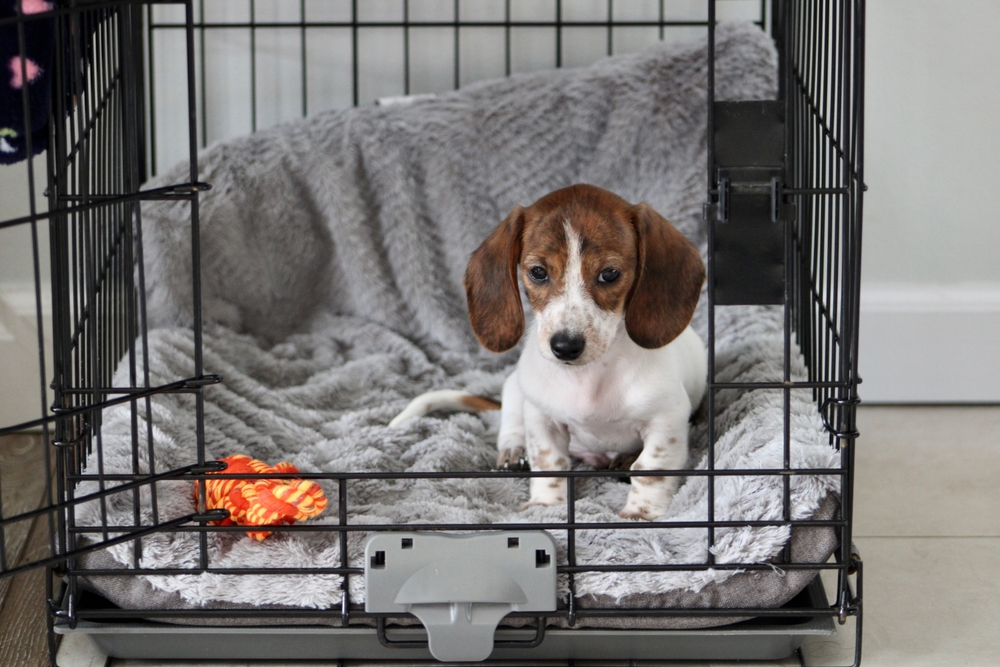

Final Thoughts
Crates are wonderful tools to help housebreak your puppy, but if your puppy keeps peeing in the crate, it can significantly slow the process.
We hope that these reasons and possible solutions have helped you determine why your puppy is peeing in the crate and what you can do to stop it from happening. If you’re concerned that your pup may have a medical condition, take them to the vet right away for an exam. Once any health issues are ruled out, you can narrow down the reasons for the behavior and help your puppy stop doing it.
Featured Image Credit: stockphotofan1, Shutterstock




